Contemporary, classic Georgian cinema set for spotlight at goEast German fest
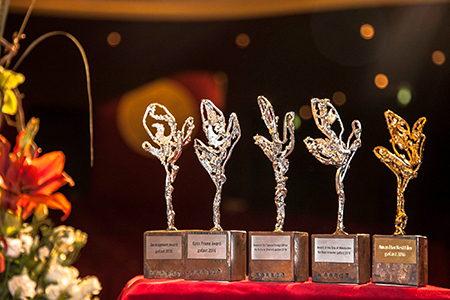
Six films by Georgian directors, ranging from 1930s Soviet classics to latest premieres, will be showcased at the 2017 edition of the goEast German festival focusing on cinema from the Central and Eastern Europe.
Opening in late April, the event will run in the western German city Wiesbaden and host a diverse program of sections screening feature and short films from around 30 countries.
Within three of the seven sections of the festival, works by Georgian directors will showcase the country’s cinema to the visitors.
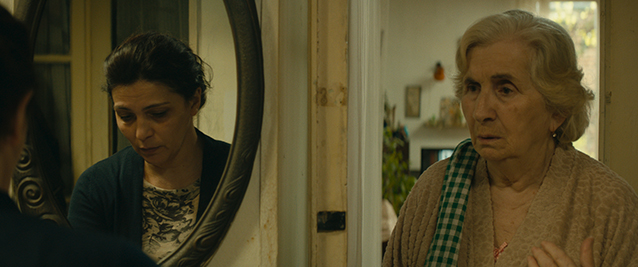
‘My Happy Family’ by Nana Ekvtimishvili and Simon Gross will screen within the festival’s main competition. Photo: goEast Festival of Central and Eastern European Film.
In the main Competition section, the award-winning feature My Happy Family by Nana Ekvtimishvili and Simon Gross will paint the picture of several generations living under the same roof, with conservative family traditions set against the independently-minded principal character.
The two directors were praised for their work on the film by a New York Times review last month that said Ekvtimishvili and Gross "could choreograph a ballet, but, lucky us, they’re filmmakers”.
The work premiered at the 2016 Sundance Film Festival before also screening at the Berlinale film festival in Germany’s capital in February.
The Competition section of the goEast festival will include another film coming from its Berlinale screening.
Rati Oneli’s feature documentary City of the Sun will showcase the director’s talent honoured with the Visions du Reel festival Special Mention in Switzerland in 2015. The camera in Oneli’s work follows the life and hardships of residents of the Chiatura mining town in western Georgia.
In the Symposium section of the German festival, two Soviet-era films by directors Lana Gogoberidze and Georgia’s first female filmmaker Nutsa Gogoberidze will be joined by a 30-minute production Felicita by Salome Alexi.
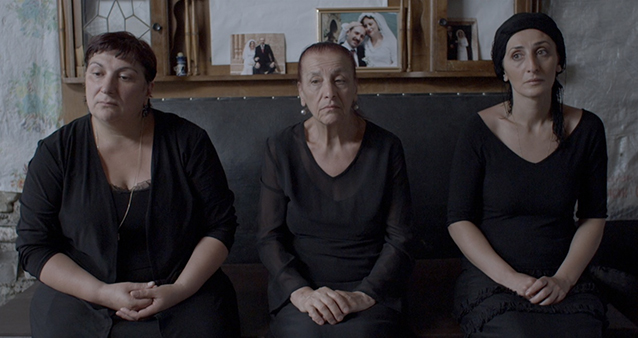
A still from Salome Alexi’s 2009 work ‘Felicita’. Photo: goEast Festival of Central and Eastern European Film.
The 2009 release by Alexi shows manifestations of the transitional period in Georgia’s history where the female principal character works as a caregiver in Italy to provide money for her family in a Georgian village.
While the unemployed men in the Georgian village are busy moaning about the lack of local female support, the women set off on the illegal and dangerous trek towards the West in order to care for strangers there for pay”, said an overview of the work.
Lana Gogoberidze’s 1977 feature Some Interviews on Personal Matters shows journalist Sophiko in a series of interviews she conducts with "a mosaic made of female voices”.
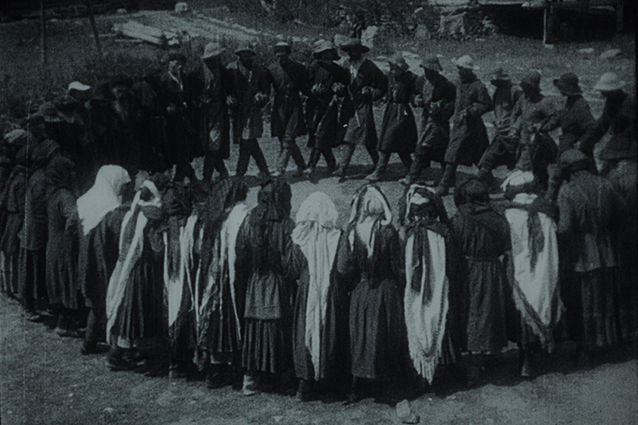
The German event will host a screening of ‘Buba’ by Georgia’s first female director Nutsa Gogoberidze. Photo: goEast Festival of Central and Eastern European Film.
A look at Stalinism and the director’s family history, unusual and unique for the cinema of its time, and one of Soviet cinema’s very first feminist films”, said a preview of the work from the goEast festival.
The section will also unveil one of the gems of the early Georgian cinema from the esteemed female director’s mother Nutsa Gogoberidze.
The 1930 film Buba "superimposes images of a shining socialist future onto the patriarchal order” from the director who, alongside with her works, "remained forgotten for many years”, said a goEast summary for the production.
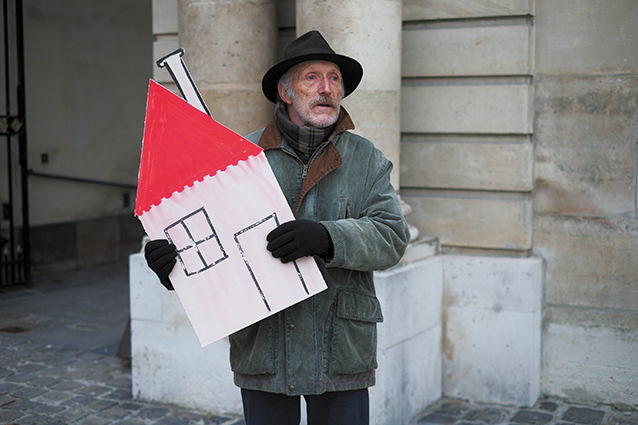
A scene from Otar Iosseliani’s 2015 feature ‘Winter Song’. Photo: goEast Festival of Central and Eastern European Film.
Concluding the Georgian presence at the festival, acclaimed filmmaker Otar Iosseliani’s 2015 French-Georgian co-production Winter Song will go on screen within the goEast Gurus section.
In Winter Song, the Georgian director, to whom goEast devoted the Homage in 2010, brings a fleet-footed and anarchic approach to an episodic story of revolution, war, friendship and how everything fits together”, said organisers of the Wiesbaden event.
Founded in 2001, the goEast festival screens around 140 films in its annual editions.
A project of the German Film Institute, the festival is dedicated to the goal of "bringing the diversity and richness of Central and Eastern European cinema into ‘the heart of the West’”.
This year’s goEast festival will run from April 26-May 2.
 Tweet
Tweet  Share
Share